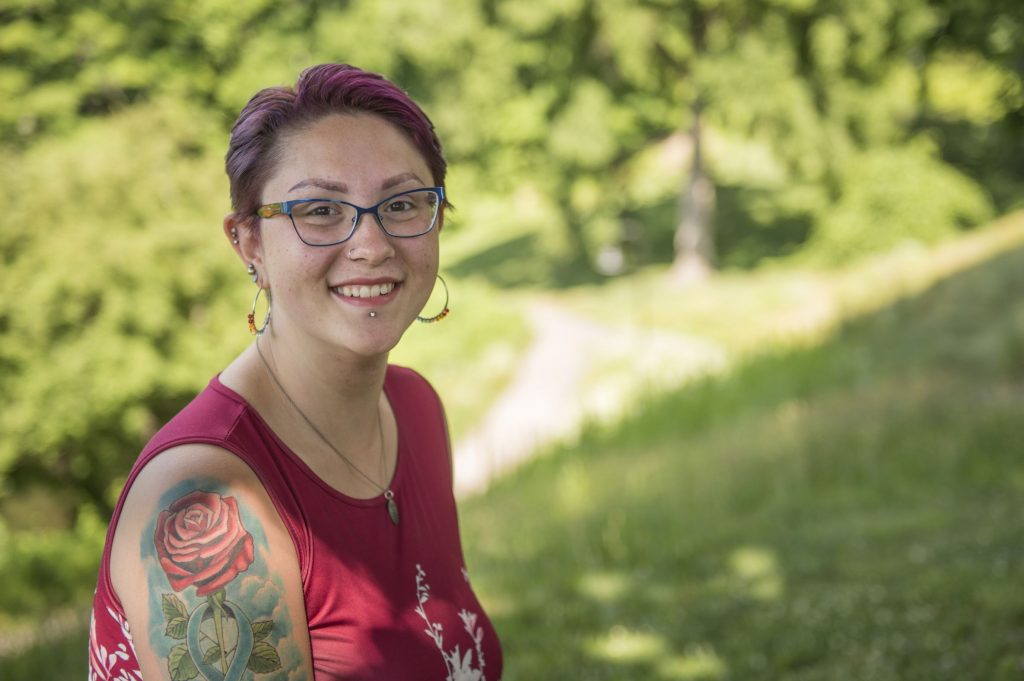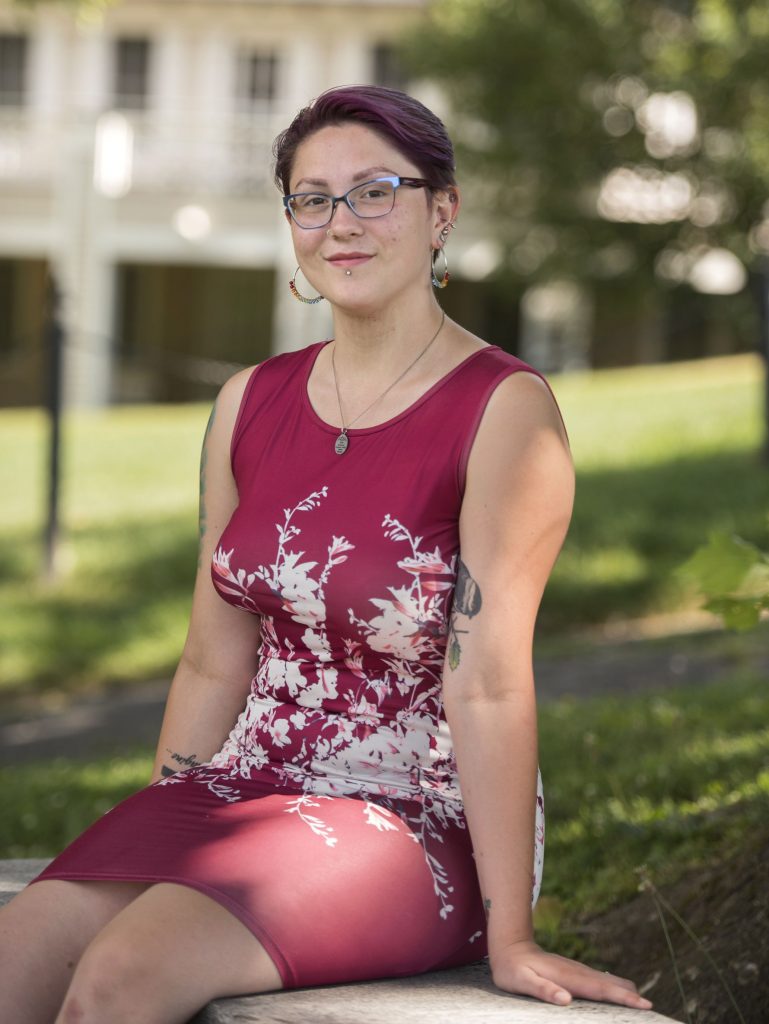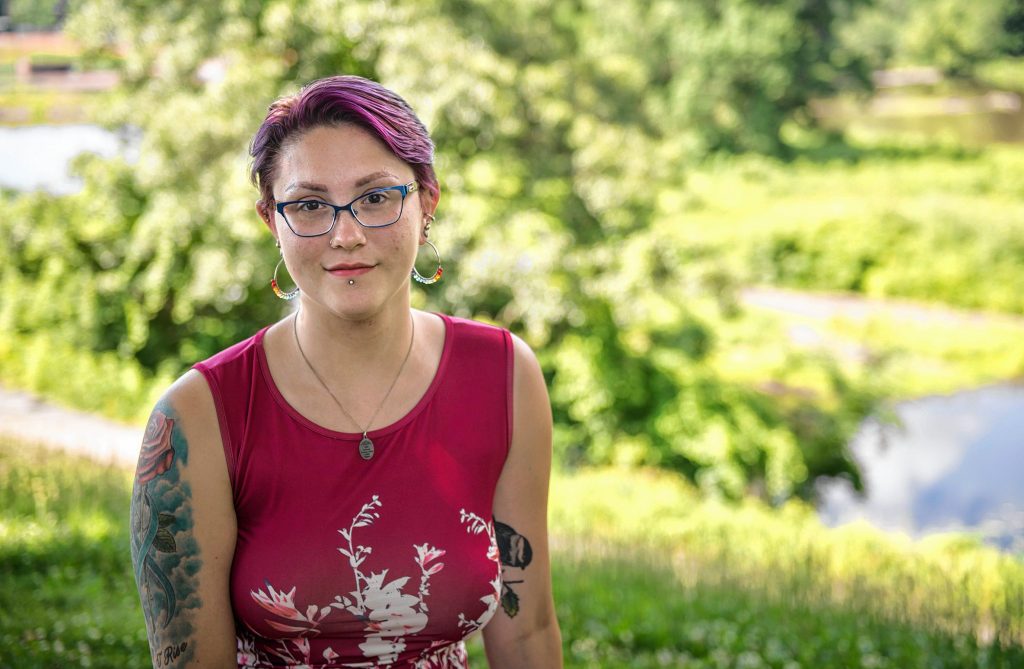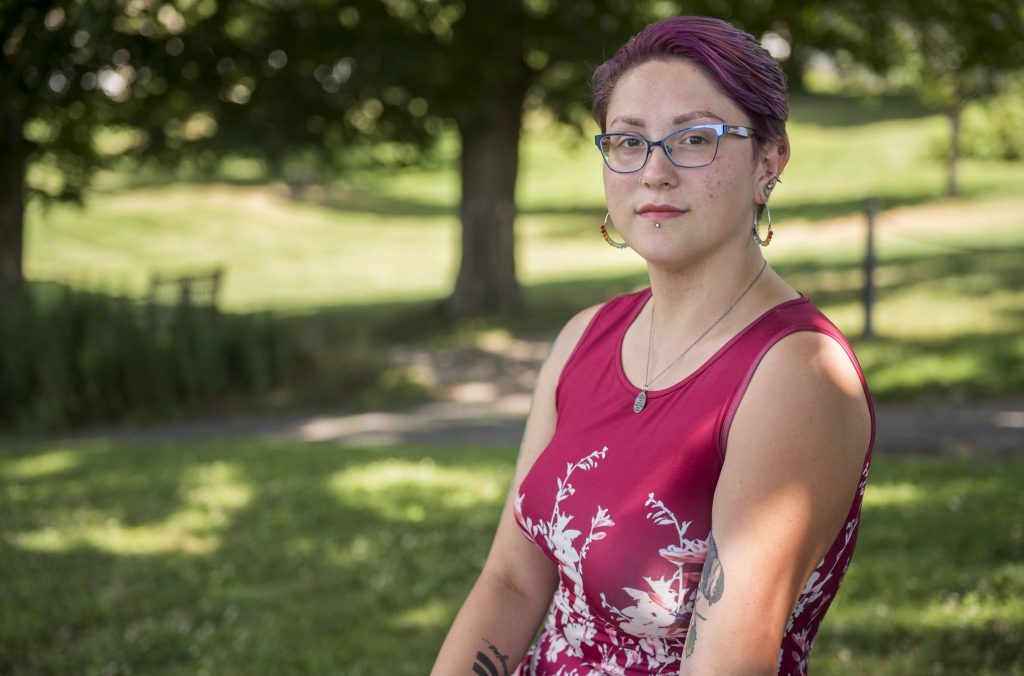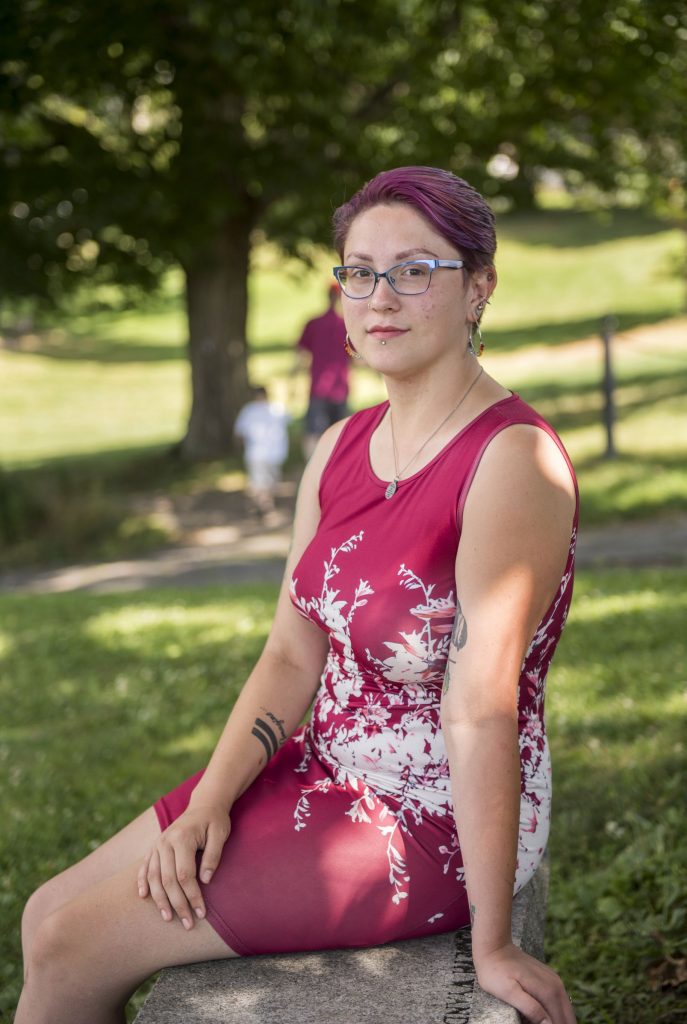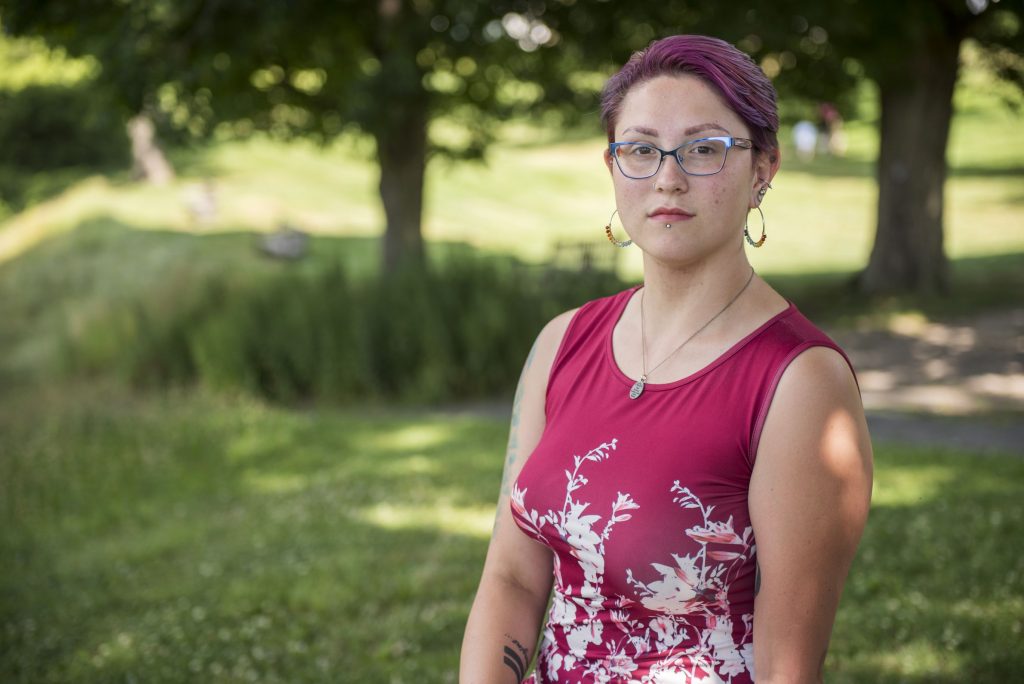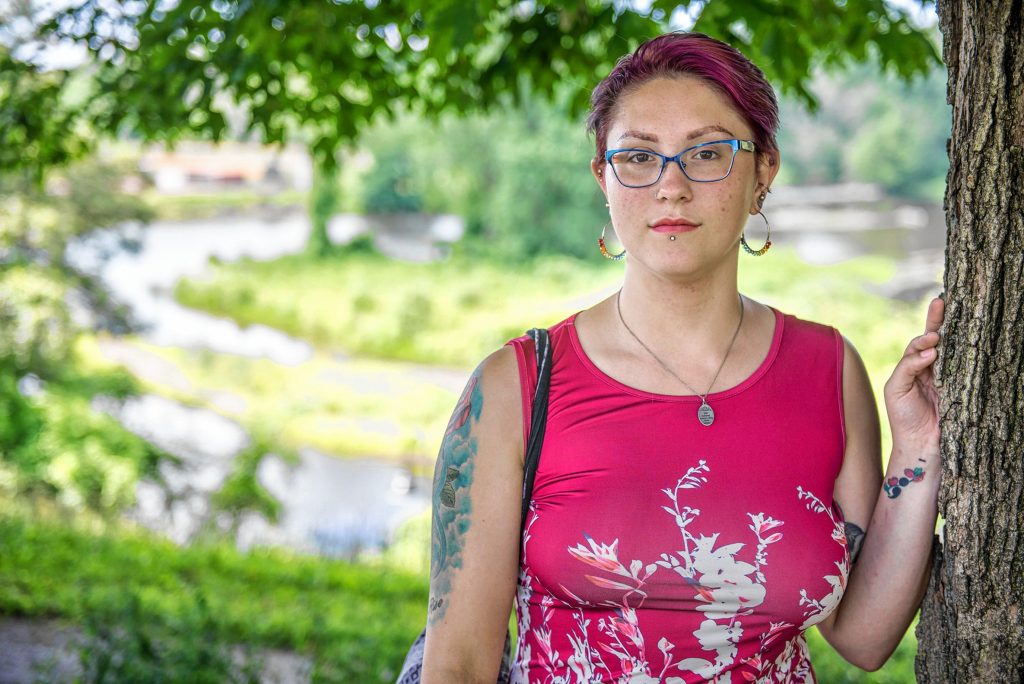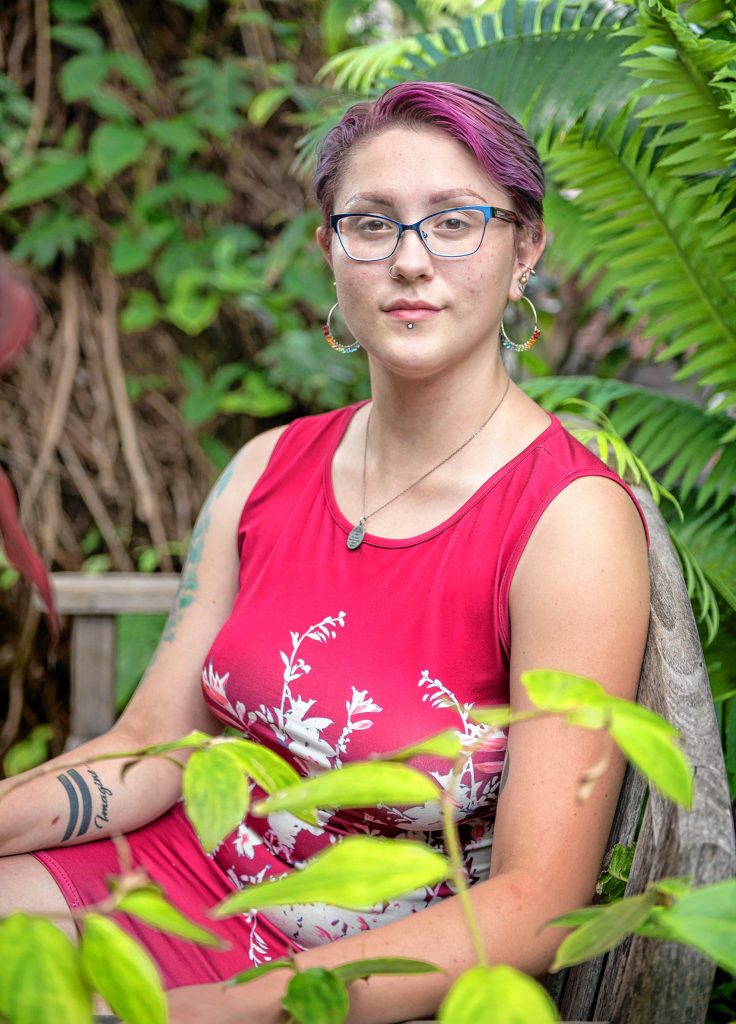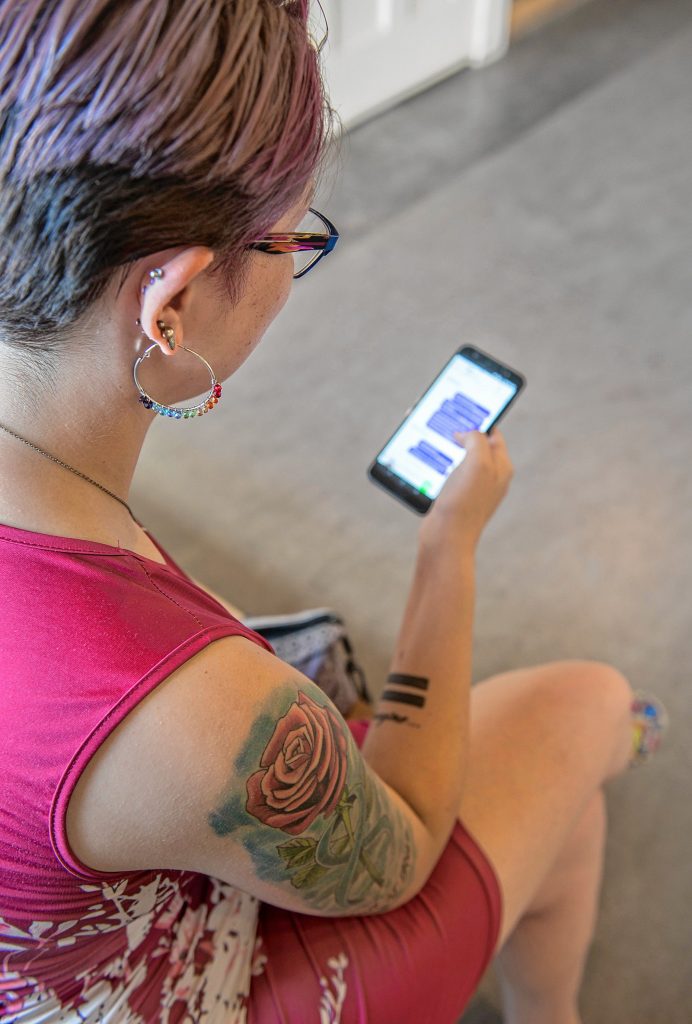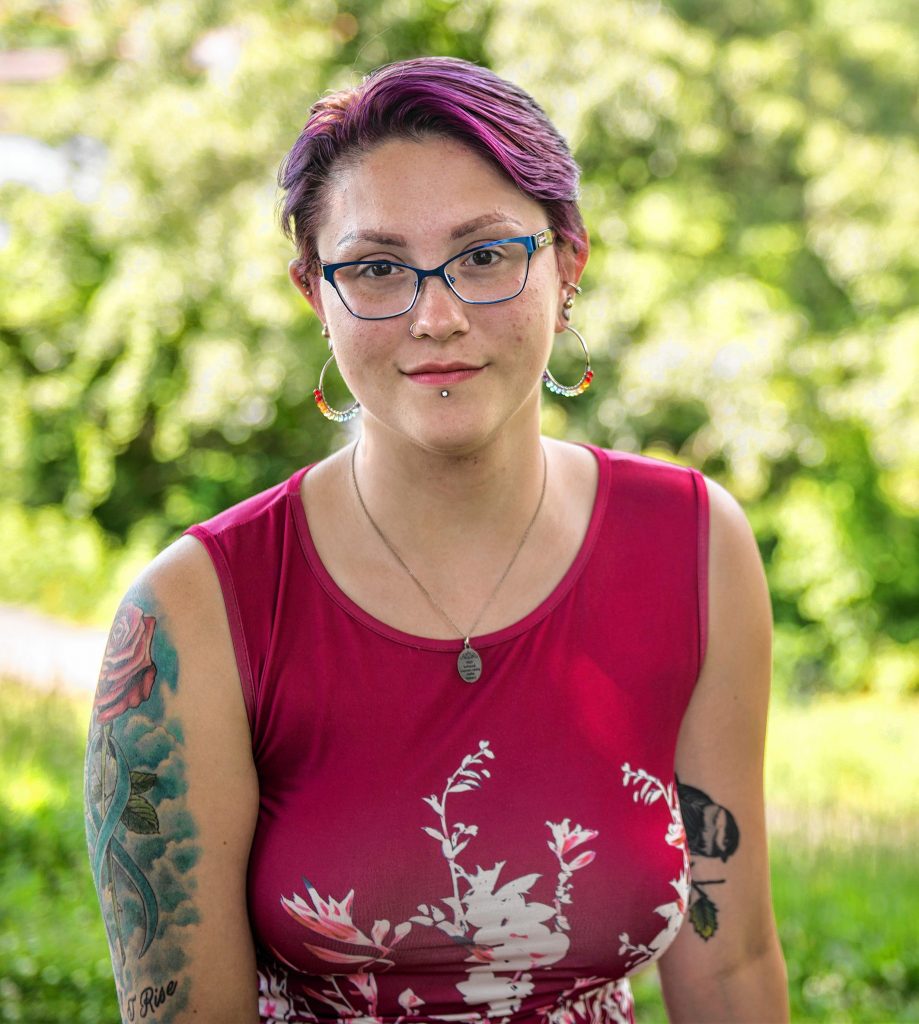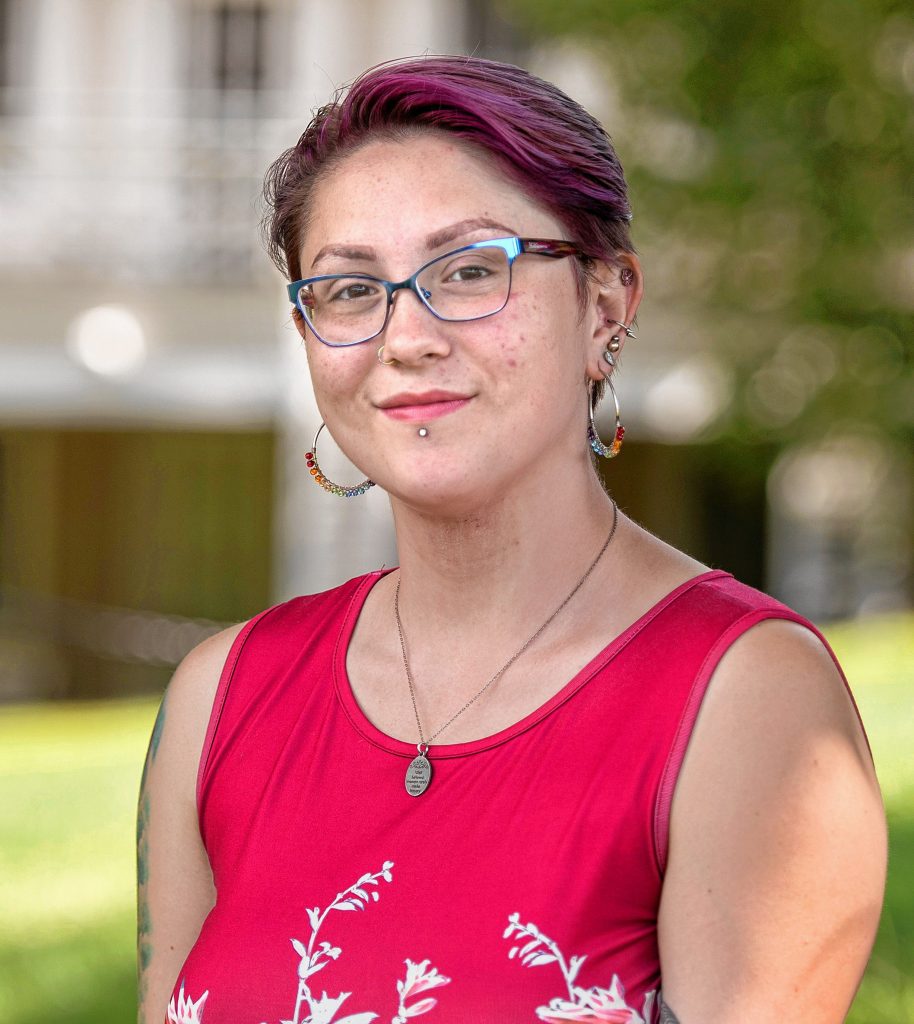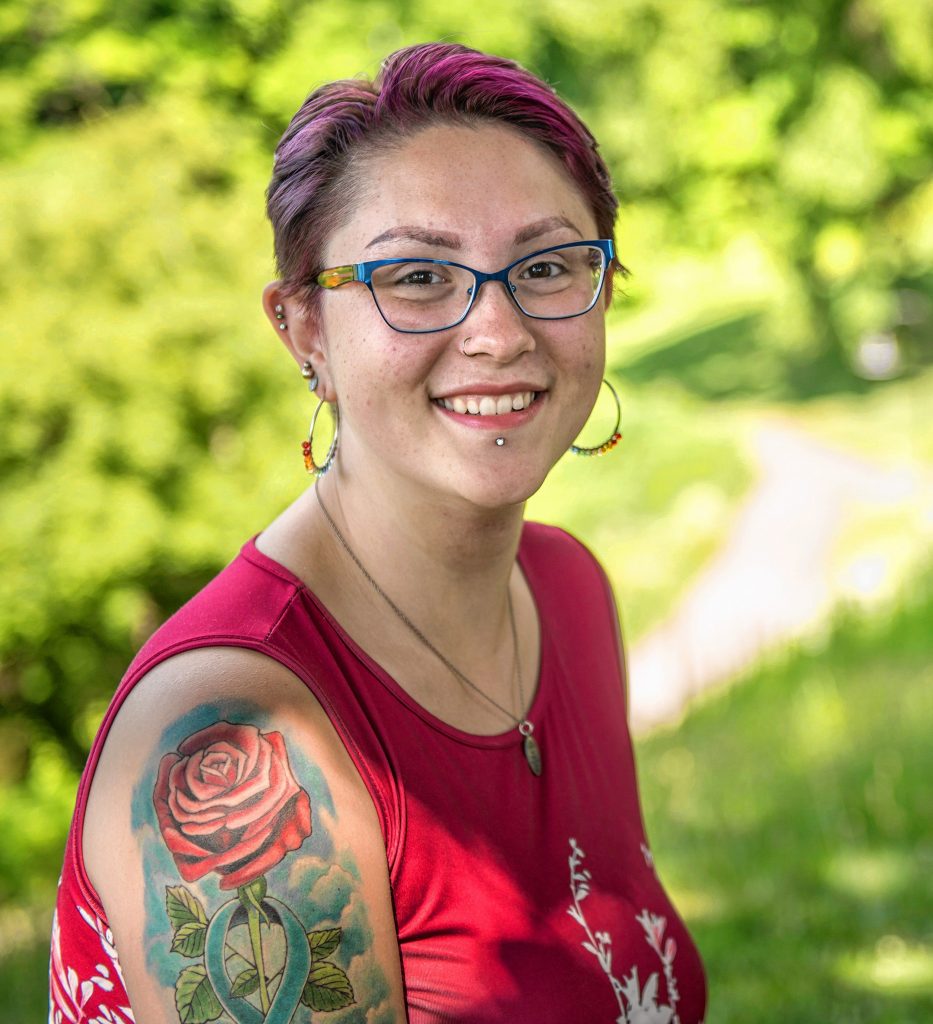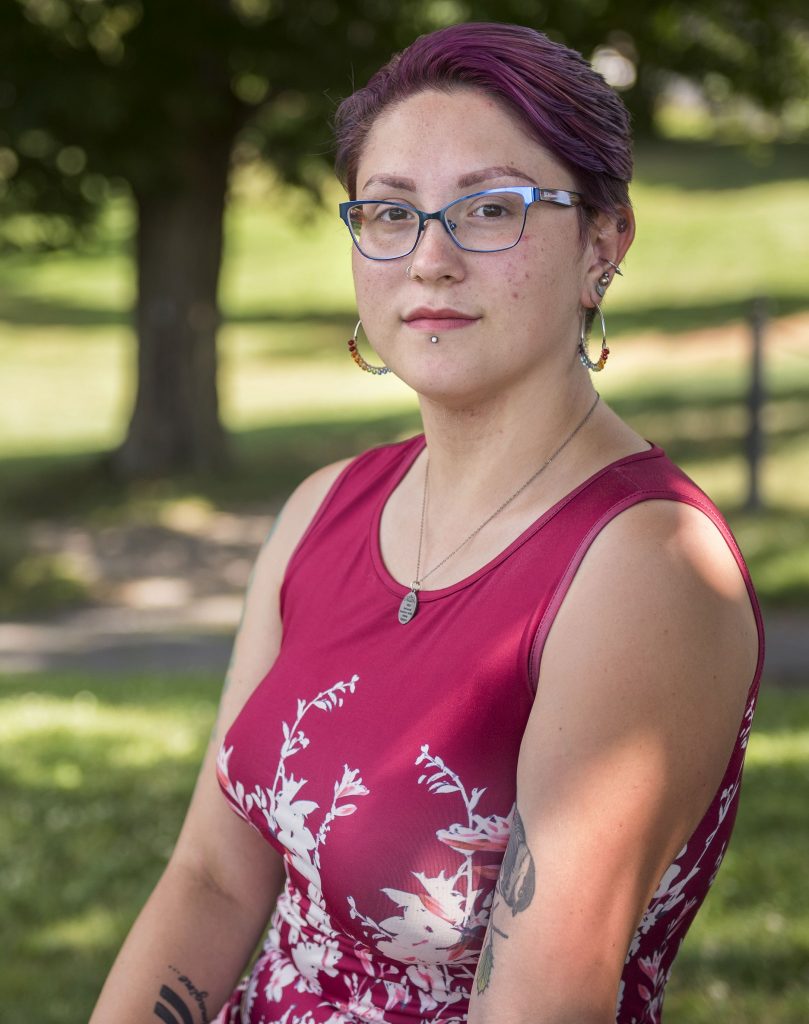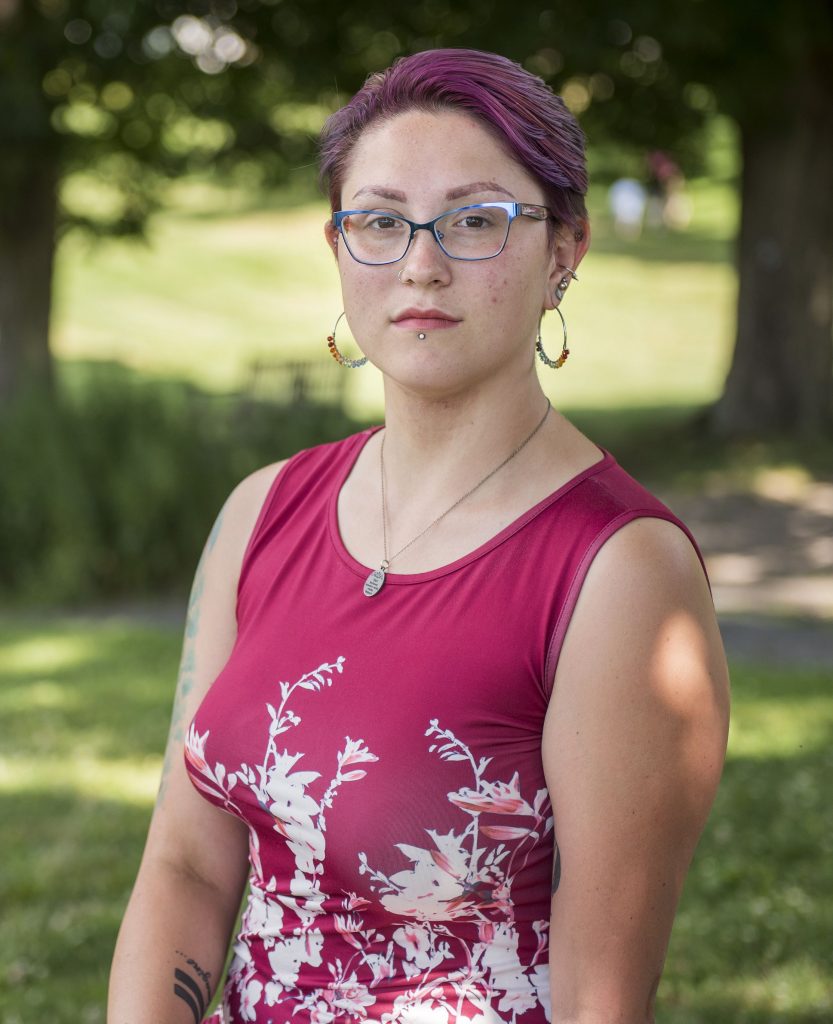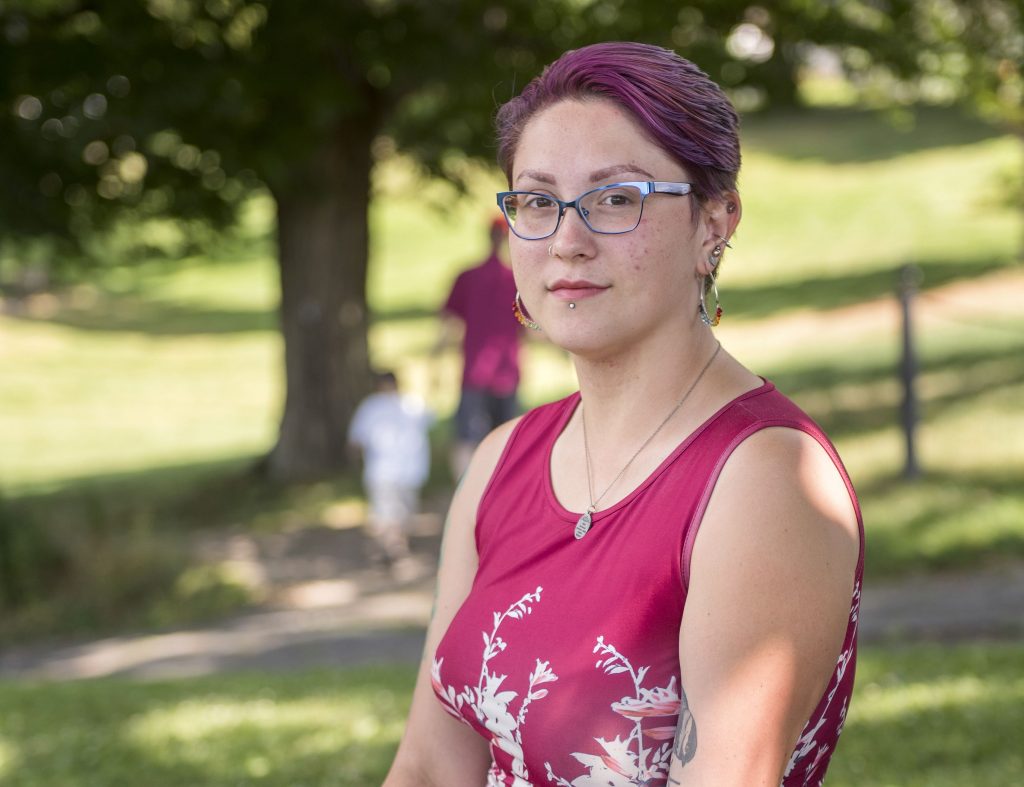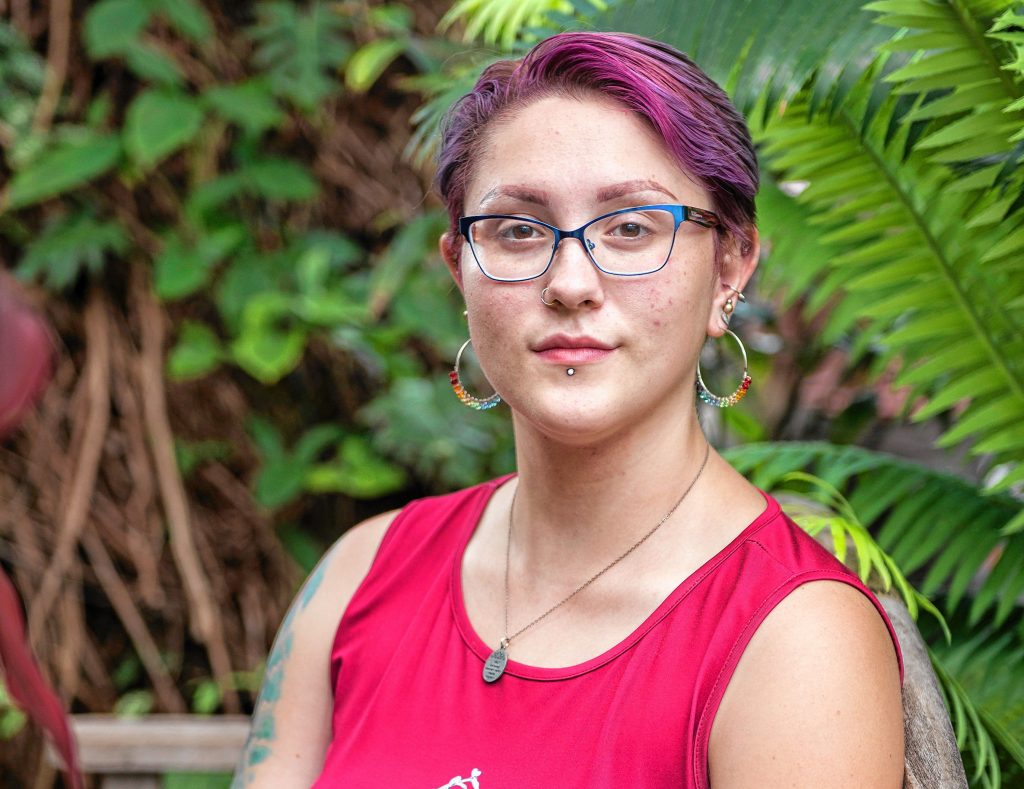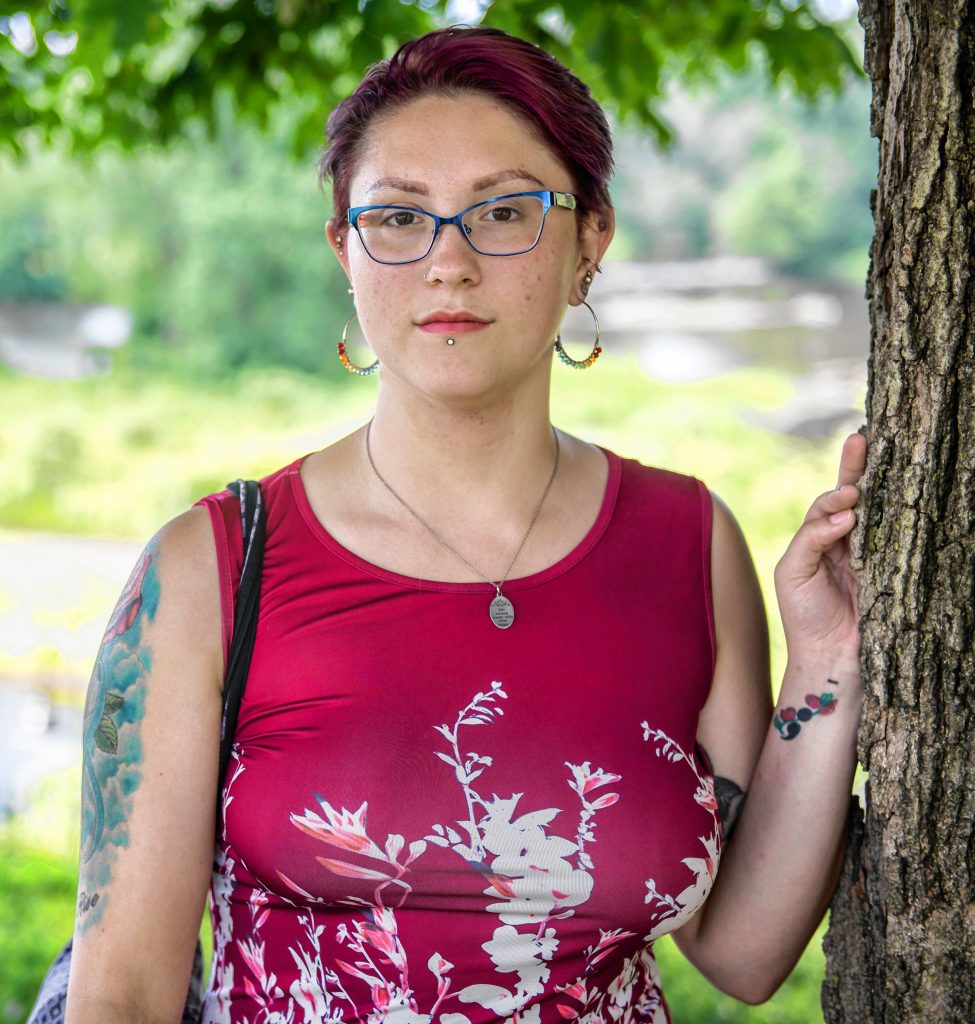When Gina Rose Napolitano was a freshman in college, she received an unexpected call from the Granby police. An officer asked if a teacher at her high school had sexual contact with her. She said no.
That was in early 2017, and she was still communicating with the man she believed to be her first love. At a legislative hearing last week, she said she was involved with Caleb Parsons, then a math teacher at the MacDuffie School, from her sophomore year there into her first year of college. The first time they had sexual contact, she was 16. He was in his 20s and a popular teacher at the private school in Granby.
“I didn’t really have the opportunity to process what had gone on until after the fact, when he was completely out of my life,” said Napolitano, now 21 and attending Wheaton College. She graduated MacDuffie in 2016, and said she hasn’t spoken to Parsons since spring 2017.
Multiple attempts by the Advocate to reach Parsons were unsuccessful.
She said her relationship with Parsons, who is almost nine years her senior, had her questioning her self-worth. Her moods were dependent on whether he responded to her texts.
“It is incredibly difficult for me to trust,” she said. “He kind of had his way with me during a time period I was most vulnerable.”
When Napolitano, now studying to be a teacher herself, learned that Parsons may still be working with young people in another state, she decided to not only go back to the police, but go public with her story.
“I can’t take that risk with someone else’s life,” she said. “I wanted to come out and name him and make sure that he can’t hurt anyone anymore.”
By speaking out, Napolitano hopes to be a cog in an effort to update consent laws in Massachusetts. Because she was 16 when she says there was sexual contact, her allegations are not criminal under Massachusetts consent law. But some law officials and youth advocates believe current law doesn’t account for the power imbalance between students and teachers that doesn’t expire when students turn 16.
Sen. Joan Lovely (D-Salem) has filed legislation that would raise the age of consent from 16 to 19 for sexual contact between educators and students of the same school district. For students with special needs, the age of consent would be 22. The law would also affect employees of state social service agencies.
On Wednesday, Sept. 4, the Joint Committee on Education hosted a public hearing where Napolitano testified in favor of two bills, both filed by Lovely. One called for the update to the consent law, the other for changes to staff training, youth education, and reporting procedures for adults suspecting child abuse.
According to a video from the hearing, Napolitano told the committee of her relationship with Parsons — who she named in her testimony — and its long-term effects, including post-traumatic stress disorder and a “lingering distrust of men.” She told the committee that she is unsure whether she wants to teach in Massachusetts if the laws are not changed.
Dudley Police Chief Steven Wojnar, who also testified at Wednesday’s hearing, is a longtime proponent for updating the consent law.
“You’re using your official position as a tool to engage in these relationships, so that’s where the problem comes in,” Wojnar told the Advocate. “Kids are there to learn and kids are in social programs to be protected. They are not there to be preyed upon by the individuals that are responsible for overseeing them.”
Mark Sternman, Lovely’s legislative and policy director, said a total of nine people, including the senator herself, testified in favor of Lovely’s bills Wednesday. Those who shared testimony included youth advocates, experts, and three individuals, including Napolitano, who identified as victims of educator abuse.
Sternman said the proposed legislation is now in the hands of the Joint Committee on Education. The board can then recommend the bills, as written or with amendments, to the Senate Rules or Ways and Means committees. Lovely is vice chairwoman of the education board, chairwoman of the Rules committee, and a member of Ways and Means.
“Sen. Lovely thought that the hearing went well and is hopeful that the Committee will give her bills favorable reports,” Sternman said in an email.
A relationship develops
Napolitano never had Parsons as a teacher. She met him while participating in the MacDuffie School theater program. As a sophomore, she was playing Lady Larkin in the school’s production of Once Upon a Mattress. Parsons, she recalls, was playing a minor role, as was common for MacDuffie School faculty.
Napolitano, then 15, developed a crush on Parsons, whom she saw regularly at rehearsals for the musical. She learned he never had stuffed animals as a child due to allergies and presented him with a hypoallergenic toy dog named Tiberius.
While still a sophomore, she sought out Parsons to record her performance in a school talent show and email her the video. She said he agreed, and from there, they began conversing through their school email accounts.
She said he sent her photographs of Tiberius, the toy dog she gave him. Around Valentine’s Day, she said, he sent her a list of his top 20 romantic comedies. He also recommended songs. For Christmas, he made her a card and gave her an online access code to a video game called To The Moon, she said.
“Looking back at these emails, when I was 15, speaking with someone like this made me really happy,” Napolitano said. “Even that was fairly inappropriate, but he could have just left it at that. It’s too bad that it ended up escalating the way it did.”
She said they emailed and exchanged gifts for over a year before they kissed after an evening play rehearsal, and that she was 16 the first time they had sexual contact.
“I distinctly recall the first time I touched him: It was May 29, 2015, in the back staircase of the computer lab, and it was the first time I had ever touched male genitalia,” she told the Joint Committee on Education on Sept. 4. “This sexual contact continued for years to come, and I truly believed that I was in love with him.”
She told the Advocate she lost her virginity to Parsons after graduation, in an AirBnb in August 2016. She said Parsons ended the relationship later that month, but they remained in touch for several months.
“Even when we were no longer communicating, being told by peers in college that what had happened was wrong didn’t faze me initially,” she said at the Sept. 4 hearing. “This was the man that I had lost my virginity to.”
Suzy Appiah, a 2016 graduate of the MacDuffie School and longtime friend of Napolitano’s, said she was aware of Napolitano’s relationship with Parsons by their junior year of high school. Before that, she said her friend and the teacher just appeared close.
“That was what we saw publicly — they were very close,” said Appiah, 21.
She said Napolitano became fixated on the prospect of continuing her relationship with Parsons into adulthood.
“She was in love,” she said. “At that age, she considered that to be love. Of course, that’s unrealistic and unhealthy. But I did notice that. I noticed her completely infatuated with the idea to start a real-life relationship with a teacher.”
Napolitano said the experience exacerbated existing mental health problems, including severe anxiety and depression. She said she told Parsons she had attempted suicide in the past. At the hearing, she said she suffered from PTSD and a lingering distrust of men that has taken therapy to address.
“Survivors of this abuse have their development and education disrupted, they feel worthless, and they are manipulated into thinking that their abuser genuinely cares about their well-being,” Napolitano said at the hearing. “In my case, a grown man harmed me repeatedly over multiple years and when I finally gathered the courage to come forward about my abuse at the age of 20, I was told by the police that what he did to me was legal in the state of Massachusetts.”
Steve Griffin, head of the MacDuffie School, declined to comment on Napolitano’s allegations, but said the school’s employee handbook has a policy against sexual relationships between students and teachers — regardless of the age of the student.
“We will not comment on individual students or faculty members, current or former, and their records. I do, however, want to state quite clearly that if a student (or former student) alleges that a crime has been committed, we are more than willing to assist the police in any investigation into the alleged behavior,” Griffin wrote in an email.
Griffin confirmed that Parsons is no longer employed at the MacDuffie School, but did not provide details. He said the employee handbook is a confidential document and declined to share the specific text of the policy he referenced.
Napolitano said Granby police called her in February 2017 to ask if she and Parsons had sexual contact while she was a student. According to an article published on the website for The Magnet, the MacDuffie School’s student newspaper, Parsons abruptly resigned in the beginning of April.
“I believe that he lost his job because of me, but I have no way of knowing that for sure,” Napolitano told the Advocate. She said it is her understanding that Parsons only admitted to the sexual contact that occurred after she graduated.
By May 2017, she said, she was no longer in contact with Parsons.
The Magnet story, published online May 5, 2017, states that Griffin “made clear to the school that speculation about the reasons for (Parsons’) departure would be fruitless and potentially slanderous to current or former students … ”
According to the student report, Parsons taught geometry and seventh-grade math, supervised the school’s gaming club, and was a long-time residential adviser, among other duties.
MacDuffie has both day and boarding students. Napolitano became a boarding student at the start of her senior year.
Napolitano said she heard from a friend that Parsons is now directing community theater in New Hampshire. According to an interview posted to YouTube by a New Hampshire television station, Parsons was directing a production in the greater Sunapee area in fall 2018. Blog posts on the theater company’s website as recent as July 2019 list Caleb Parsons as the author.
Like other attempts made by the Advocate over several weeks, an attempt to reach Parsons through the theater company was unsuccessful.
Limitations of the law
Napolitano said Granby officers told her they learned of her relationship with Parsons through an anonymous tip. She still does not know who provided the tip, but would like to thank the individual.
“I have some measure of hope that when they hear that I’m trying to change a law or press charges they’ll tell me that it was them, but we’ll see,” Napolitano said.
When she went back to the police this year, she said Granby officers were apologetic when they told her that because she was 16 the first time she and Parsons had sexual contact, criminal charges were unlikely.
“The police were very kind to me and noticeably frustrated that they could not be of more help,” Napolitano wrote in an email. “They told me that I was certainly still a victim, and asked if he had done anything that I had not consented to at the time. I told them that I believed that I could not have consented, and they basically apologized for the way the law was constructed.”
Granby Police Chief Alan Wishart said state law prohibits his department from releasing or confirming reports of sex crimes. Napolitano provided the Advocate with a copy of the statement she said she submitted to Granby police.
When the Advocate asked Wishart for his thoughts on Sen. Lovely’s proposed legislation, he responded, via email, “I think doing what we can to keep kids safer should be a top priority. I support anything that does that.”
Lovely said many victims don’t come forward until well into adulthood. In the video of the Sept. 4 hearing, Lovely thanks Napolitano for sharing her story.
“There’s a lot of self-blame,” Lovely said to the Advocate. “People say, ‘I must have brought it upon myself,’ where they didn’t bring it upon themselves. They were sought out and preyed on.”
Wojnar, the Dudley chief, said authority figures who abuse their power in this way create long-term consequences for victims.
“In a lot of cases, you’re talking about young people who maybe are experiencing their first love,” Wojnar said. “What kind of promise has been made, or threats or issues or concerns? How has that now tainted them as far as their future relationships?”
Napolitano said she is still processing the effects of her relationship with Parsons.
“It’s weird, because it would be easier if I just hated him. It would be much easier if I had no empathy or no feelings toward him as a person, but the fact is I do,” she said. “I was in love with him for three years and I’m not looking back on this as someone who is 40 or 50. … I’m looking back on this as something pretty recent.”
Updating consent laws
Jetta Bernier, executive director of the advocacy organization Massachusetts Citizens for Children, known as MassKids, also testified in favor of Lovely’s bills on Sept. 4.
Speaking with the Advocate, Bernier said even with consent law as it stands, an option for Napolitano and other adults who believe they were subject to past abuse is to file a civil complaint.
“She may have felt at the time that it was consensual, but it was not up to her to decide that,” Bernier said. “She is certainly able to get justice for this.”
Lovely, who was an attorney before becoming a full-time legislator, said while a civil action can result in monetary damages, a criminal finding can result in jail time. She said her proposed legislation would allow a student to file a criminal complaint against an alleged abuser.
“If someone knows that it is a crime to participate in this situation, they may think twice about it — I would hope that they would,” she said.
Napolitano said filing a civil charge remains a future possibility.
Wojnar said he has been rallying for a change in consent laws since his department investigated a report of a Dudley schoolteacher having sex with a male student in 2004. Because the victim was 16, there was no criminal finding until the teacher, Amber Jennings, admitted to sending nude photos to the student and pled guilty to disseminating harmful materials to a minor. She was sentenced to two years of probation, lost her teaching license, and was ordered to stay away from the victim.
According to the Worcester Telegram & Gazette, she was not required to register as a sex offender because she did not have a criminal record.
But Wojnar, then a father of two school-aged children, was disheartened to learn there was no crime in adults having sexual relationships with minors under their supervision. He said abusers often seek out young people in a particular age group, so a teacher, for example, gets a new pool of potential victims each year.
“I always raise it with any of the legislators, as we have the discussion. I say, ‘Look, if you have kids, and especially if you have teenage kids or had teenage kids, put yourself in that position: Tell me how you’d feel about them engaging in this relationship at 16 years old.’”
According to a study released by the U.S. Department of Education in 2004 (“I know this was a while ago,” Bernier said. “There’s been no money to do more research.”), a national survey showed 9.6 percent of students in grades eight through 11 reporting “unwanted” sexual misconduct by an educator.
Lovely said her goal is to prevent these abuses, but if the abuse cannot be prevented, then to ensure there be consequences.
“I don’t want to villainize all educators, coaches, or school employees,” she said. “These are few bad actors that don’t belong in the education system.”

